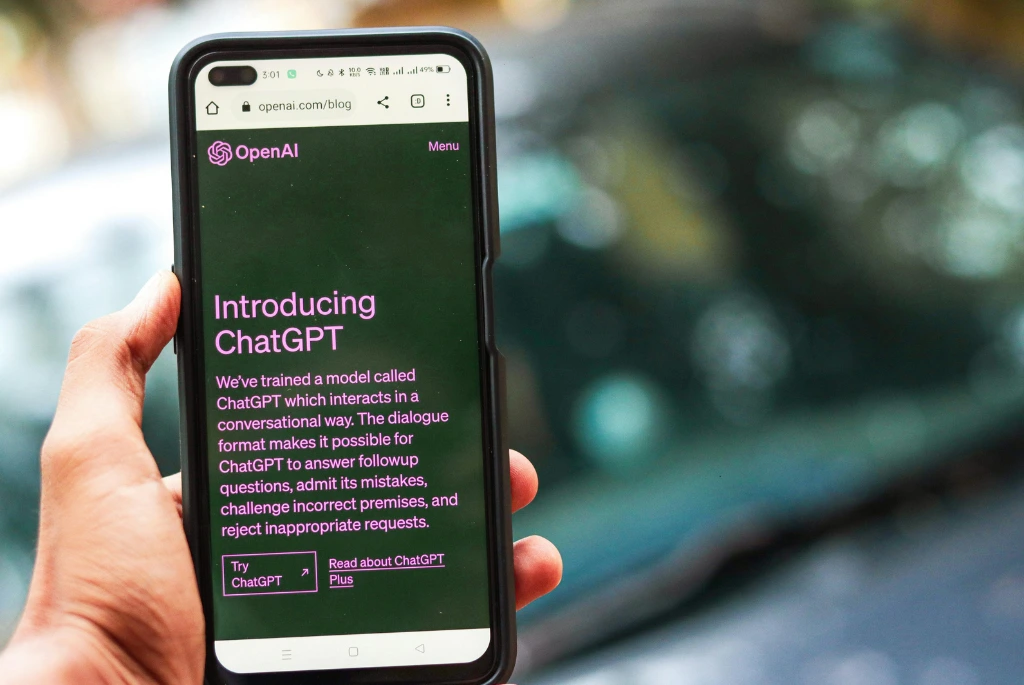The traditional customer journey is always changing. For years, digital marketing experts have said that the AIDA (Awareness, Interest, Desire, Action) model optimises for clicks, website traffic, and a multi-step checkout process. Yet, with the rise of conversational artificial intelligence, particularly models like ChatGPT, a concept is emerging that threatens to collapse this entire structure: Instant Checkout.
While ChatGPT does not yet have a physical “checkout button,” industry discussions, such as the one you referenced, are focused on a future where AI facilitates the entire purchasing journey, from research to transaction, in a single, frictionless conversational step. This isn’t merely an update to e-commerce; it’s a foundational change to the geometry of the sales funnel. For marketers, the time for adaptation is not tomorrow; it is now.
Deconstructing “Instant Checkout” in the Age of AI
The term “Instant Checkout” here extends far beyond a one-click payment button. In the context of generative AI, it represents a seamless, zero-friction conversion driven entirely by an intelligent agent.
Imagine a customer querying the AI: “I need a new pair of durable, ethical running trainers for road use under £150.”
In the current model, the AI might return search results or a list of brands, forcing the customer to visit multiple websites, compare specifications, read reviews, and input payment details.
In the “Instant Checkout” model, the AI agent performs all these steps simultaneously:
- Aggregating Research: It cross-references product databases, pricing information, real-time stock levels, and independent reviews.
- Determining Intent: It understands the user’s specific criteria (durable, ethical, road use, price cap).
- Executing Transaction: It selects the statistically best match, asks for simple confirmation, and executes the purchase via securely stored payment credentials or a linked digital wallet.
The entire Interest and Desire phases of the traditional funnel become an opaque, algorithmic black box. The customer moves directly from Awareness (or need recognition) to Action (the instant purchase). For brands, this loss of visibility over the crucial comparison stage is the ultimate disruptor. If the AI doesn’t recommend you, you do not exist in the decision-making process.

The Funnel Collapse: From AIDA to AI-Driven Decision
The marketing funnel isn’t just contracting; its core mechanics are shifting.
1. Awareness: The New Battleground for Discovery
Awareness remains vital, but its definition changes. Marketers are no longer fighting for the top of the search engine results page (SERP); they are fighting for inclusion in the AI’s knowledge graph.
If a customer asks the AI, “What is the best coffee machine under £50?”, the AI needs to have instant, verifiable data on your machine. This makes SEO, or rather, AI Optimisation (AIO), a data-structuring challenge. Brands must ensure their product data—features, benefits, pricing, and availability is clear, unambiguous, and easily consumed by large language models (LLMs). This means making heavy investments in schema markup, structured data, and authoritative, non-promotional content to train the AI to trust your brand as a factual source.
2. Interest and Desire: The Black Box
This is where the major paradigm shift occurs. In the past, marketers used persuasive copy, retargeting ads, and personalised emails to nudge a customer from interest to desire. Now, the AI performs this entire deliberation internally.
Marketers no longer sell to the consumer at this stage; they must sell to the algorithm.
The AI makes decisions based on objective, quantifiable metrics: trust signals (reviews, sustainability reports), price/feature comparison, and historical success rates. This means the creative, emotional brand work—while still crucial for initial awareness—needs to be supported by unassailable proof points. Your product reviews need to be outstanding. Your specifications must be accurate. Your returns policy must be fair.
3. Action: The Instant Conversion
The action is executed with zero friction. The customer skips creating an account, filling out forms, or even thinking about shipping preferences. The implication is that the primary conversion goal for a brand shift is to move from “get a click to the checkout page” to “achieve the conversational recommendation.”

Strategic Pillars for the Conversational Commerce Era
To survive and thrive in this new landscape, marketing efforts must pivot across three fundamental strategic pillars.
Pillar 1: Optimisation for AI Discovery (AIO)
Marketers must become proficient at speaking the AI’s language.
- Knowledge Graph Clarity: Your brand must be a clearly defined entity in the digital world. Utilise Google’s Knowledge Graph and similar authoritative data structures. Ensure your company description, CEO, physical locations, and key selling propositions are consistent across all platforms.
- Structured Data Mastery: Go beyond basic product schema. Implement rich snippets for reviews, availability, and specific features (e.g., “washable,” “vegan-friendly,” “energy-rated”). The AI should be able to instantly compare your product’s attributes with your competitor’s without visiting your site.
- The Content Shift: Content marketing must move from ‘Top-of-Funnel’ persuasion to authority. Instead of writing a 2,000-word blog post titled “Why Our Product is Best,” write a factual, comprehensive guide on “How to Choose the Right Running Trainer,” where your product naturally and objectively emerges as the superior choice based on facts and data the AI can trust.
Pillar 2: Extreme Brand Salience and Reputation Management
In a world of instantaneous, non-transparent decisions, the AI will default to the most trusted, safest option. Trust becomes the highest currency.
- Authenticity Over Volume: A proliferation of low-quality, paid-for reviews will be filtered out by sophisticated LLMs. Investment must be placed in generating genuine, high-quality, and detailed user-generated content (UGC).
- Public Relations as Conversion: Non-promotional mentions in reputable media outlets, academic papers, or industry reports become more valuable than banner ads. These are powerful trust signals that the AI factors into its recommendation algorithm.
- Ethical Footprint: Since AIs are often programmed with ethical weights (e.g., favouring sustainable or fair-trade options), ensuring your brand’s ethical sourcing and labour practices are well-documented and publicly accessible is now a direct conversion driver.
Pillar 3: The Post-Purchase Relationship & CRM
If the AI controls the acquisition, the only reliable, direct channel left for a marketer is the post-purchase relationship.
- Retention as the New Acquisition: Loyalty schemes and exceptional customer service become paramount. A satisfied, retained customer is much more likely to prompt the AI with a request like, “Re-order my last purchase from Brand X,” bypassing the entire competitive search process.
- The Power of First-Party Data: The conversion data (who bought what, when, and where) will remain proprietary to the brand. This first-party data must be used to fuel hyper-personalised customer relationship management (CRM) strategies, offering timely refills, upgrades, or complementary products directly through email or app notifications, channels the AI does not yet fully intermediate.

Tactical Adjustments: Where Marketing Budgets Must Shift
This shift requires a tactical reallocation of resources.
- PPC: A Bid for Recommendation: Traditional Pay-Per-Click (PPC) ads might be replaced by a new bidding model: paying to be included in the AI’s top recommendation set. This is not a banner ad but a subtle sponsorship of the conversational answer itself. Marketers will need to become experts at bidding not on keywords, but on intent scenarios (e.g., “durable ethical running trainers”).
- Analytics: Conversational Attribution: The current method of tracking a customer’s journey using UTMs or cookies will become obsolete. New KPIs are needed to measure Conversational Attribution, which involves tracking a sale that never visited the brand’s website until the final confirmation page. This will require deep integration and data sharing with the AI providers to understand the prompt that led to the conversion. ‘AI Recommendation Rate’ and ‘Prompt-to-Purchase Lead Time’ will become standard metrics.
- The Ethical Consideration: When an AI suggests a brand, transparency is key. If a brand pays to be the AI’s preferred recommendation, regulators and consumers will demand disclosure. Marketers must pre-empt this by ensuring any paid placement is clearly signalled to avoid damaging the trust, the very element that led to the recommendation.
The Challenges Ahead
The road to conversational commerce is not without substantial hurdles.
- Data Monopoly: The AI providers (OpenAI, Google, Meta, etc.) will control the new path to purchase, creating a potential choke point. Marketers must lobby for open standards and fair access to attribution data.
- Homogenisation of Creativity: If the AI only favours the “best” factual choice, will it stifle the creative, emotional storytelling that defines unique brands? The challenge for creative marketers is to find ways to build emotional connection and differentiation within the constraints of factual, verifiable data.
- The Trust Gap: The AI needs to be completely secure and trusted with personal and payment data. A single high-profile breach could shatter consumer confidence and set back conversational commerce by years.
Conclusion
The concept of ChatGPT’s “Instant Checkout” marks a pivot from selling to the consumer to selling to the artificial intelligence acting as the consumer’s proxy. This shift demands a strategic reorientation, moving from optimising for clicks on a website to optimising for algorithmic trust and data excellence.
For the forward-thinking marketer, the future lies in becoming the most accurate, authoritative, and trusted answer to any given query. Stop pouring resources into a collapsing funnel and start investing in data, reputation, and CRM strategies that will ensure your brand is the default recommendation when the customer asks the AI, “Just buy it for me.” The age of conversational commerce is here, and only those who adapt their data structure and strategic focus will secure their place at the new, frictionless point of conversion.
Contact Our Experts For Digital Marketing Strategy
Contact our team of Digital Marketing Strategy specialists, who have the knowledge and expertise to fully optimise your social media and website, helping you increase the number of leads and conversions your business generates.
Call our team on 0121 439 5450, alternatively, fill out our contact form.
Categories
- Advertising (6)
- Artificial Intelligence (5)
- CMS (1)
- Content Marketing (9)
- Content Writing (4)
- Conversions (2)
- Development (1)
- Digital Tips & Insights (31)
- Email Marketing (7)
- General (1)
- Google (39)
- Guides (7)
- Image (3)
- Industry News (7)
- Mobile Apps (1)
- Mobile Search (5)
- Odyssey New Media News (5)
- PPC (5)
- Product Listing Ads (1)
- Remarketing (2)
- Reviews (3)
- SEO (60)
- Backlink Analysis (6)
- Link Detox (2)
- Local SEO (1)
- SEO Basics (3)
- SEO Content Writing (3)
- SEO Ranking Factors (10)
- SEO Tips & Advice (18)
- Technical SEO (2)
- Social Media (52)
- Facebook (14)
- Instagram (9)
- Social Advertising (2)
- Social Analytics (1)
- Twitter (6)
- YouTube (8)
- Video (5)
- Video Conference (1)
- Web Design (9)
- Web Usability (2)



